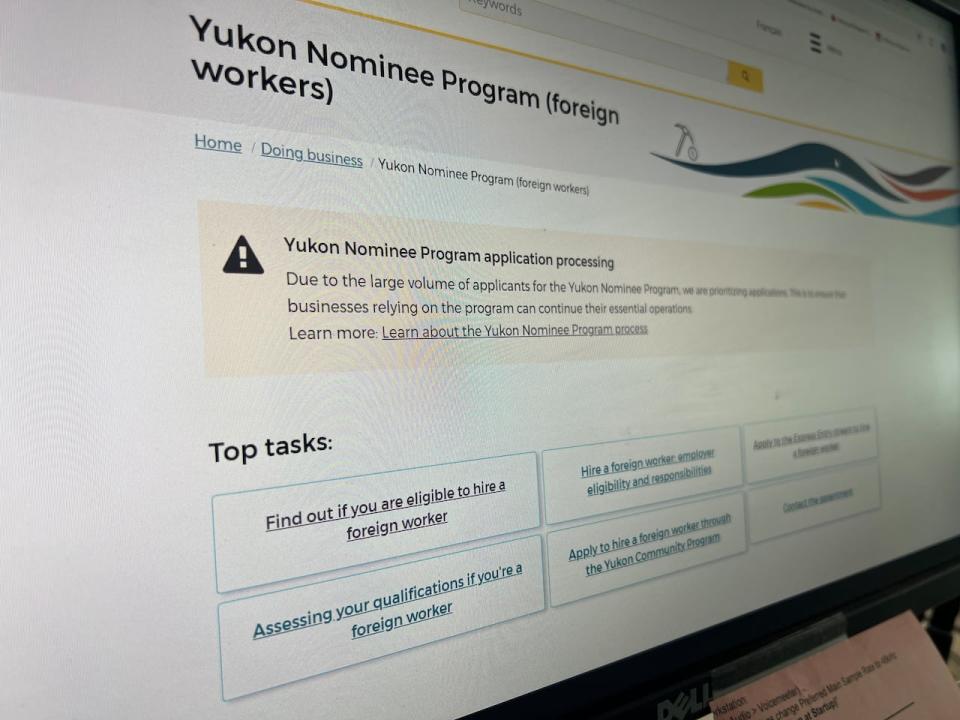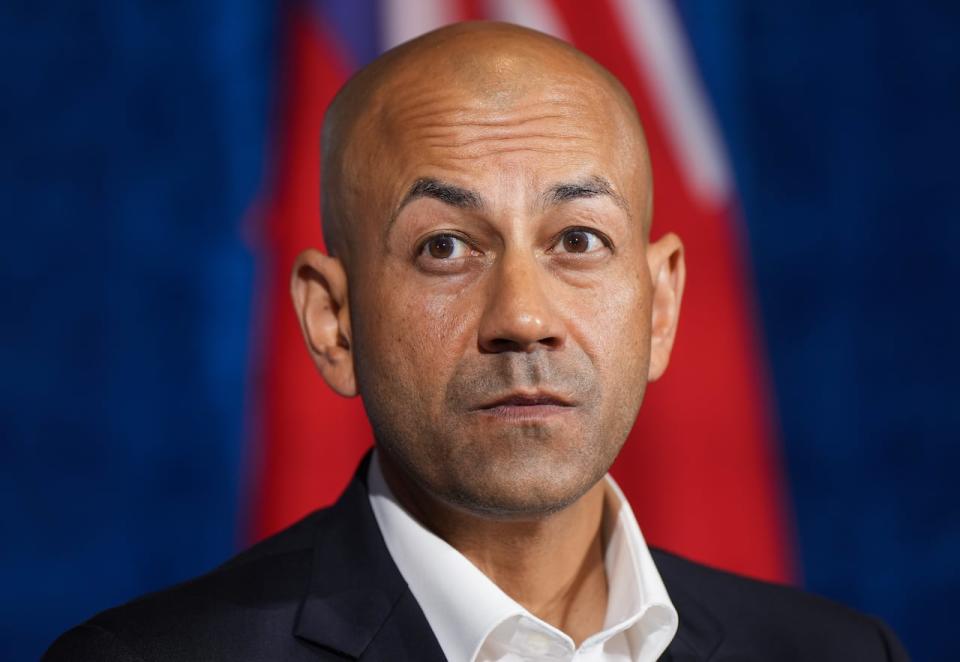Nominee program pause could be 'big trouble,' says Whitehorse business owner

Shortsighted, and without warning.
That's how business owner Doug Terry describes the Yukon government's recent decision to temporarily halt Whitehorse-based applications for the Yukon Nominee Program.
"Zero — there was no heads-up whatsoever," said Terry. "People like me are just a deer in the headlights now, waiting for the dust to settle."
Terry owns both Tim Hortons franchises in Whitehorse. He says the nominee program is essential to meet his staffing needs.
The nominee program is designed to help fill labour shortages by expediting the permanent residency process for foreign nationals. Earlier this month, the territorial government announced the program is already full for 2024 and that it was being paused, in Whitehorse, until 2025.
Terry estimates that 25 per cent of his current staff have come via the nominee program.

Of the 590 applications submitted so far this year, only 107 had been processed as of earlier this month. (Katie Todd/CBC)
"For any businesses in Whitehorse that are in desperate need of labour, they could be in big trouble," said Terry. "Just when demand is highest, they're choosing to shut down the program as opposed to meeting the labour market needs."
Terry says employees often end up staying in the Yukon once they finish their contract at Tim Hortons.
"You know, I see former employees all over the government sector, private sector, hospitals, dental offices," said Terry. "I mean, if they shut down the pipeline, you know a lot more people are going to feel the pain than just the hospitality and restaurant sector."
The Yukon government says the pause is necessary to deal with a backlog of applicants. Of the 590 submitted so far this year, just 107 had been processed as of earlier this month.
"We're trying to be really respectful of the public sector and let them work on the applications they have," said Yukon Premier Ranj Pillai when the pause was announced. "Let's not build expectations for employers that are putting new applications in that we just don't have."

Yukon Premier Ranj Pillai says the nominee program pause was done out of necessity to allow public sector staff adequate time to address the backlog of Whitehorse-based applications needing to be processed. (Darryl Dyck/CP)
The typical processing time for a Yukon Nominee Program application is 12 to14 weeks. Right now, one application can take 89 days to complete.
The program's pause has kept them busy at the Yukon Chamber of Commerce. Luke Pantin, the chamber's executive director, says they too were caught off guard by the announcement and have been hearing a lot from business operators since.
"We were stunned," said Pantin. "We are deeply concerned about the immediate and long-term impacts on the local economy."
The Yukon chamber has partnered with the Whitehorse Chamber of Commerce to survey local businesses for input.
"The response was extensive and there was consensus," said Pantin. "It is not a very healthy situation.
"Every business is experiencing increased operational costs and disruptions that could possibly lead to reduced services and higher prices," added Pantin. "It's also going to delay economic development for everyone."
Chamber staff have already met with the government in hopes of coming up with a fast resolution.
The program will continue to accept applications for nominees in Yukon rural communities and is expected to resume in Whitehorse sometime next year.


